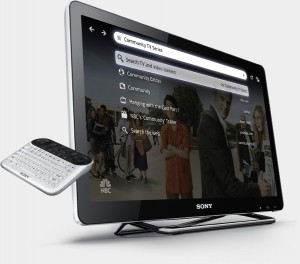Google TV hobbled by content providers
When Google TV was announced, there was quite the buzz. It was the most anticipated device of the year (right after the iPad). But once it was released, reality set in; content providers control what devices will stream their media.
Content providers apparently don’t care about the end user. Any computer can plug into an HDTV to view online content. Yet when Sony and Logitech release a purpose-built device with Google TV, the content providers decide this just won’t do; a full operating system must be in the mix to view their content, or at least a licensing agreement exclusive to the device (a la PlayStation 3 and Xbox 360).
 It’s true that content providers have contractual obligations with each production company, providing different types of revenue for different types of media. A TV program broadcast on cable receives one royalty rate, while the same program streaming online gets another. The producers clearly want to maximize their profits, so they want to control where their content can be viewed.
It’s true that content providers have contractual obligations with each production company, providing different types of revenue for different types of media. A TV program broadcast on cable receives one royalty rate, while the same program streaming online gets another. The producers clearly want to maximize their profits, so they want to control where their content can be viewed.
It just doesn’t make sense though. If I watch Modern Family on ABC over-the-air, I watch about eight minutes of commercials. I watch it on Hulu, and I get between six and ten minutes of commercials. TV ads are more expensive, of course, because they reach a larger audience, but since they’re already streaming the content on Hulu.com, what does it matter if I stream it to my MacBook and display it on my TV or if I stream it to a purpose-built set-top box like the Logitech Review?
Here’s a preliminary list of websites blocking content to Google TV devices:
- ABC
- CBS
- NBC
- Hulu
- Fox
- SyFy
- Comedy Central
- MTV
- VH1
- Nickelodeon
Google and Hulu are in talks to bring a Hulu Plus subscription-based application to the Google TV world, but it is probably too little, too late. Google really dropped the ball on securing content licenses.
Laura Weinstein asks the question,
Imagine the protests that would ensue if Internet services arbitrarily blocked video only to Internet Explorer or Firefox browsers! Or if Hulu and the other networks decided they’d refuse to stream video to HP and Dell computers because those manufacturers hadn’t made deals with the services to the latter’s liking.
What do you think? Did Google screw up, or are the content providers just being petty?



It also surprises me that Google doesn’t implement technical workarounds like the Boxee Box is doing.
I realize that it’s complicated, since the Boxee box uses a standard flash version, whereas the Google TV devices uses some type of embedded Flash version, which the websites can detect.